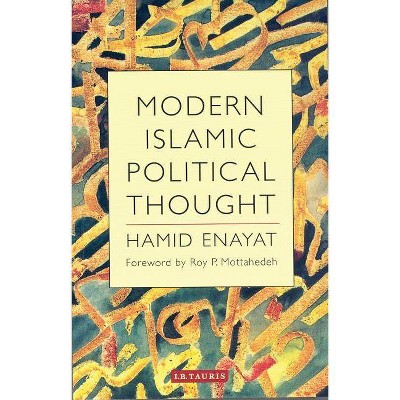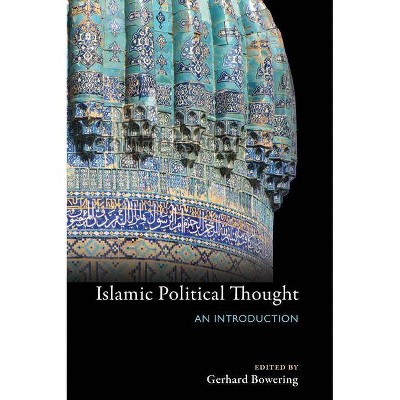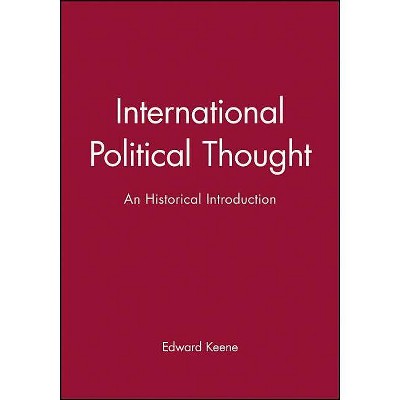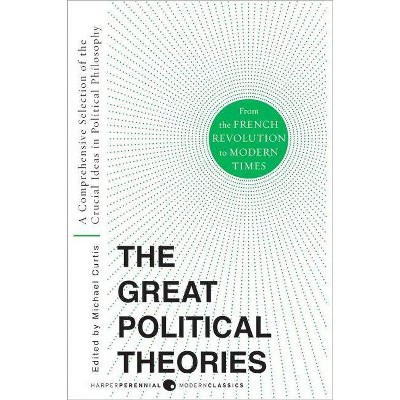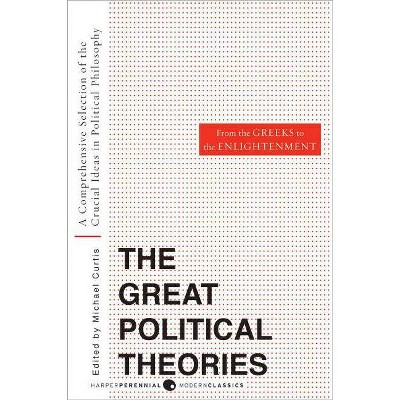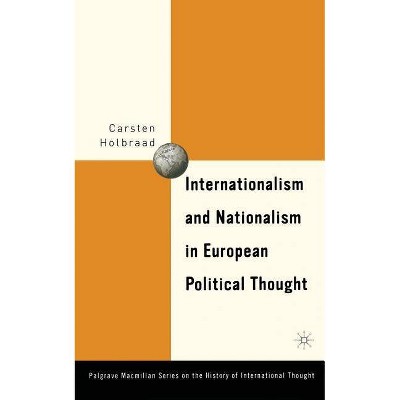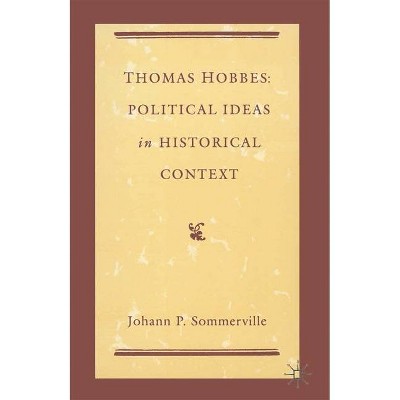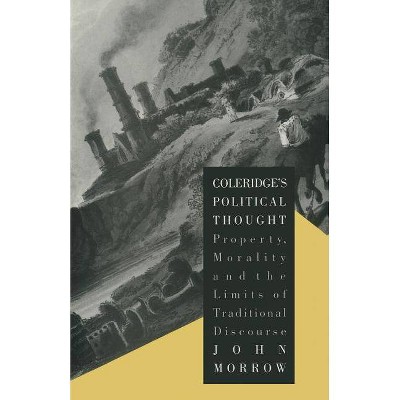Hobbes and Modern Political Thought - by Yves Charles Zarka (Paperback)
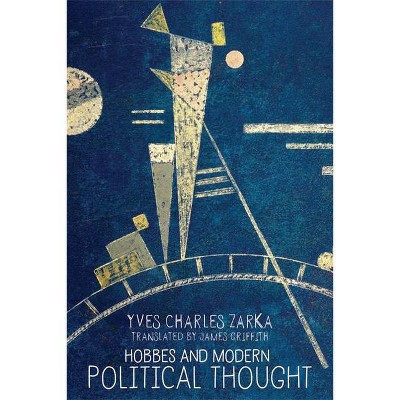
Similar Products
Products of same category from the store
AllProduct info
<p/><br></br><p><b> About the Book </b></p></br></br><p>Discover how Hobbes established the framework for modern political thought: liberalism originates in the Hobbesian theory of negative liberty; Hobbesian interest and contract are essential to contemporary discussions of the comportment of economic actors; and state sovereignty returns anew in the servility of the state. </p><p/><br></br><p><b> Book Synopsis </b></p></br></br><p>Yves Charles Zarka shows you how Hobbes established the framework for modern political thought. Discover the origin of liberalism in the Hobbesian theory of negative liberty; that Hobbesian interest and contract are essential to contemporary discussions of the comportment of economic actors; and how state sovereignty returns anew in the form of the servility of the state. </p> <p>At the same time, Zarka controversially argues against received readings claiming that Hobbes is a thinker of a state monopoly on legitimate violence. </p><p/><br></br><p><b> From the Back Cover </b></p></br></br>'Hobbes and Modern Political Thought brings the work of Yves Charles Zarka - one of the most important interpreters of Hobbes - to Anglophone readers, perhaps for the first time. Zarka's long-standing engagement with Hobbes shows how to read Hobbes's philosophical works. This text, admirably translated, will enrich the English discussion of Hobbes's philosophy.' Richard A. Lee, Jr, Professor of Philosophy, DePaul University Zarka's compelling examination of Thomas Hobbes as a contemporary political thinker Yves Charles Zarka investigates how Hobbes established the framework for modern political thought by elaborating a complete political anthropology: recasting the idea of inalienable individual rights, constructing an abstract idea of the state, and inventing political representation. In his examination, Zarka also shows how Hobbes remains a contemporary thinker here at the end of modernity. Thus, the Hobbesian theory of negative liberty is the origin of liberalism, where interest and contract are found in contemporary discussions of the comportment of economic actors, and state sovereignty returns anew in the form of the servility of the state. Translated and with a contextualising introduction by James Griffith, this book is no mere accounting of Hobbes as a central historical figure but an argument against a calcified understanding of what makes Hobbes our contemporary. Yves Charles Zarka is Professor at the Sorbonne, Paris Descartes University, and Global Professor at Beijing University. He also teaches in New York, Rome, Barcelona and Porto Alegre and edits the political philosophy review Cités. James Griffith is Assistant Professor of the History of Political Thought at the Bratislava International School of Liberal Arts, Bratislava, Slovakia. Cover image: Wassily Kandinsky, Fragil (Fragile), 1931 (c) akg-images Cover design: [EUP logo] edinburghuniversitypress.com ISBN 978-1-4744-0121-0 Barcode<p/><br></br><p><b> Review Quotes </b></p></br></br><br><p>Zarka's book is the culmination of years of reflection by one of the most important Hobbes scholars working in France today ... On account of the acumen with which the author identifies the philosophical stakes of Hobbes' project, the clarity with which he elaborates Hobbesian concepts, and the complexity and originality of the readings advanced along the way, <em>Hobbes and Modern Political Thought</em> is worthy of careful study by students of Hobbes or anyone interested in the origins of modern political philosophy.</p>--Meghan Robison, Montclair State University "Graduate Faculty Philosophy Journal"<br><br>One of the great virtues of Yves Charles Zarka's book is its consistent attention to these dimensions of writing, which allow him to thread a variety of issues in Hobbes's political thought together into a narrative running from the problems that Hobbes was called to solve to the ways in which he constructed his elaborate solutions and, thereby, shaped modern political thought ... Zarka's commentary deserves to be read widely by Hobbes scholars and those interested in the history of modern political thought.--Ioannis D. Evrigenis, Tufts University "Notre Dame Philosophical Reviews"<br><p/><br></br><p><b> About the Author </b></p></br></br><p>Yves Charles Zarka is Professor of Political Philosophy at the Université Paris Descartes (Sorbonne), the general editor of Oeuvres de Hobbes (Vrin), and has also published La décision métaphysique de Hobbes (Vrin). He edits the journal Cités (PUF) and, among his works on contemporary political philosophy, has recently published Refaire l'Europe (PUF), Refonder le cosmopolitanisme (PUF), and L'inappropriabilité de la Terre (Armand Colin). <p>James Griffith is Assistant Professor in the History of Political Thought at the Bratislava International School of Liberal Arts.<p>
Price History
Price Archive shows prices from various stores, lets you see history and find the cheapest. There is no actual sale on the website. For all support, inquiry and suggestion messages communication@pricearchive.us
